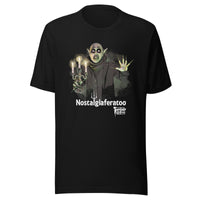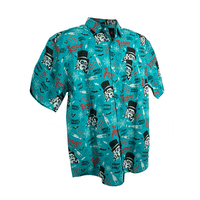Ron Howard made an exit plan to grow out of kiddie roles
He said The Andy Griffith Show had his back early on, helping him go much further than the average child star.

When Aunt Bee leaves town for The Andy Griffith Show episode called "Andy and Opie, Bachelors," Sheriff Andy has to step back into the role of head of home. He expects there will be no trouble. But let’s be honest — there's a reason he keeps Aunt Bee around.
About five minutes into the episode, Andy asks Opie what he wants for dinner. He says Aunt Bee left them two choices: roast chicken or meatloaf.
"How about if we just have some chocolate cookies and milk?" Opie suggests.
For Ron Howard, growing up on The Andy Griffith Show and delivering pie-eyed lines like this one had the potential to freeze up his career for good, with casting agents and audiences only ever seeing him as "Little Opie."
In 1974, Howard told The Detroit Free Press that The Andy Griffith Show took special care to help him avoid this fate.
"The Griffith people encouraged me to do other things outside the series, so I would be known as Ronny Howard and not 'Little Opie' to the industry," Howard said. "It worked for me." Those "other things" during his time in Mayberry included guest spots on The Fugitive, Route 66, The Big Valley and Dr. Kildare.
Still, by the time Howard actually became a bachelor in the real world in his 20s, the child star still felt he had some growing up to do in the eyes of Hollywood.
"I've never looked older than I was, of course, but always played right around my age — now I just turned 20 and I'm playing a guy that's 17," Howard told The Windsor Star in 1974.
At that time, Howard had just started Happy Days, a show he saw as a way to gradually transition into adult roles, literally by playing a teen who becomes an adult on the sitcom.
"Happy Days is letting me mature somewhat," Howard told The Times and Democrat in 1975. "Last year, me and my buddies on the show were juniors in high school and this year we're seniors. Next year, the plans call for us all to go on to college."
The last thing he wanted was to stay a teenager forever, and who could blame him? We all have to grow up eventually!
"I would hope that when I'm 28, I wouldn't still be playing guys who are 19," he told The Windsor Star.
By 1975, Howard wasn't just trying to act his age. In his real life, he'd taken the biggest leap an adult can make when he married his high school sweetheart, Cheryl.
Playing Richie Cunningham was a stepping stone for Howard, who The Times and Democrat noted had grown up to become a "fully-grown and very serious person." Audiences just didn't see him that way yet.
Howard thinks playing Opie on The Andy Griffith Show actually played a part in people fully accepting him as someone they should take seriously, though. And this helped him as he grew into more mature roles and then into more creative work as a movie director.
"I think that people pretty much accept what they see on the screen and going back to the days of The Andy Griffith Show, they generally think I'm a fairly straight guy — which probably isn't too far off," Howard said.
Back in 1975, all Howard could do was hope he’d done enough to keep acting into adulthood.
"These next few years will be a period of transition for me," he said. "At least I hope they will be. I can't go on forever playing an 18-year-old."

Watch The Andy Griffith Show on MeTV!
Weeknights at 8 & 8:30, Sundays at 6 & 6:30 PM
*available in most MeTV markets






9 Comments

It would be an interesting comparison to find out what happened to Jerry Mathers career. I have not followed him, but am sure there are series' fans who have. Did he quit for a normal high school experience and then was never able (or interested) in re-entering the Industry. My hunch is, he didn't have the same kind of connections or opportunity for apprenticing a craft. He would be a good example of a cute young kid getting typecast and then just not being considered for young adult roles. But please, someone fill in the blanks here to help explain!





























